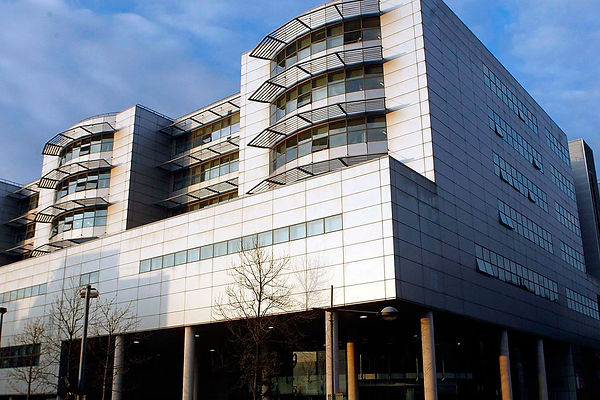
HSC NORTHERN IRELAND
Health and Social Care (HSC) is the publicly funded healthcare system in Northern Ireland. Although distinct from the National Health Service (NHS), it is considered a part of the NHS in the United Kingdom.
The HSC provides free of charge health services to all citizens of Northern Ireland and the rest of the United Kingdom.
For services such as Accidents and Emergencies (A&E), patients simply walk in, state their name and date of birth, are given treatment and then leave. It is often called the 'NHS', as in England, Scotland and Wales, but differs from the NHS in that it provides not only health care but social care too. The HSC service was created by the Parliament of Northern Ireland in 1948.
Trusts associated with the HSC include:
- Southern Trust
- South Eastern Trust
- Western Trust
- Belfast Trust
- Northern Health
- Social Care Trust
All these HSC bodies are accountable to the Department of Health which in turn is accountable, through the Minister, to the Assembly for the manner in which this duty is performed.
Trusts are the main providers of health and social care services to the public. Each trust manages its own staff and services and controls its own budget.

KNOW THE LOCATION
Education
Education in Northern Ireland is governed separately from the rest of the United Kingdom, with its own educational system. The region's education system is structured into primary and post-primary (secondary) levels. Primary education typically spans seven years, and post-primary education consists of five to seven years.
The education system in Northern Ireland places a strong emphasis on academic achievement and offers a broad curriculum. Students usually take General Certificate of Secondary Education (GCSE) examinations and later progress to Advanced Level (A-Level) or equivalent qualifications.
Higher education is provided by universities and colleges, including institutions like Queen's University Belfast and Ulster University. These institutions offer a diverse range of undergraduate and postgraduate programs, contributing to Northern Ireland's reputation for academic excellence and research. Education in Northern Ireland is an essential component of the region's social and economic development.


Transport
Transport in Northern Ireland is facilitated by a well-developed network of roads, railways, and public transportation. The road infrastructure includes a network of motorways and dual carriageways connecting major cities and towns. Public buses operated by Translink serve urban and rural areas, providing essential connectivity for residents.
The rail network in Northern Ireland is managed by Northern Ireland Railways (NIR), offering train services connecting Belfast with other cities such as Londonderry, Bangor, and Portadown. The rail system plays a vital role in both commuter and leisure travel.
Belfast, the capital city, has an extensive bus service, including the Glider rapid transit system, enhancing public transportation options. Additionally, Belfast has an expanding bike-share scheme, promoting sustainable commuting.
Air travel is facilitated by Belfast International Airport and George Best Belfast City Airport, connecting Northern Ireland to various domestic and international destinations.
Ferries operate between Northern Ireland and Great Britain, providing both passenger and freight services. The transport infrastructure in Northern Ireland is crucial for economic development, tourism, and maintaining connectivity within the region and beyond.
Leisure
Northern Ireland offers a diverse range of leisure options, combining natural beauty, cultural experiences, and recreational activities. The region's stunning landscapes, including the Giant's Causeway and the Mourne Mountains, provide a backdrop for outdoor enthusiasts. Hiking, cycling, and exploring coastal trails are popular activities.
Belfast, the capital city, boasts a vibrant cultural scene with museums, galleries, and historic sites such as the Titanic Belfast. The city's lively pubs and restaurants offer a taste of local cuisine and entertainment.
Northern Ireland is known for its championship golf courses, attracting golf enthusiasts from around the world. The Causeway Coastal Route, one of the most scenic drives in the world, offers a leisurely journey along the coast, featuring landmarks like Carrick-a-Rede Rope Bridge and Dunluce Castle.
Traditional music and dance are celebrated in various festivals and events throughout the year, reflecting the rich cultural heritage of the region. From exploring Game of Thrones filming locations to enjoying watersports on the lakes, Northern Ireland provides a diverse range of leisure options for residents and visitors alike.

Relocation Package & Salary
-
- Trust will refund the cost of IELTS/OET fee
-
- Trust will refund the cost of NMC Registration fee
-
- Trust will refund the cost of CBT fee
-
- Trust will cover the cost of COS application
-
- Trust will cover the cost of Visa Application fee
-
- Trust will cover the cost of Flight Ticket
-
- Trust will provide 6 weeks' free accommodation
-
- Salary - Band 4 - Pre-Registered Nurse - £23,949; Band 5 - Registered Nurse - £27,055
